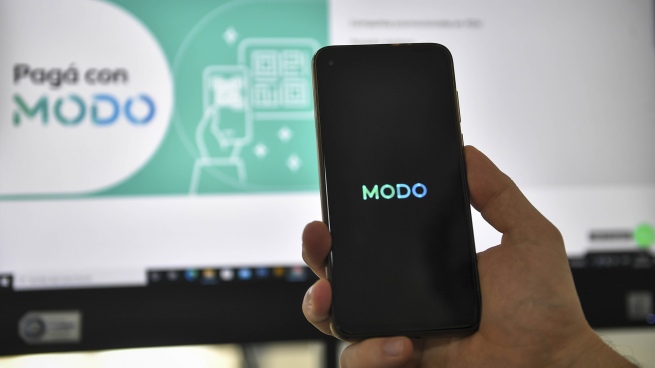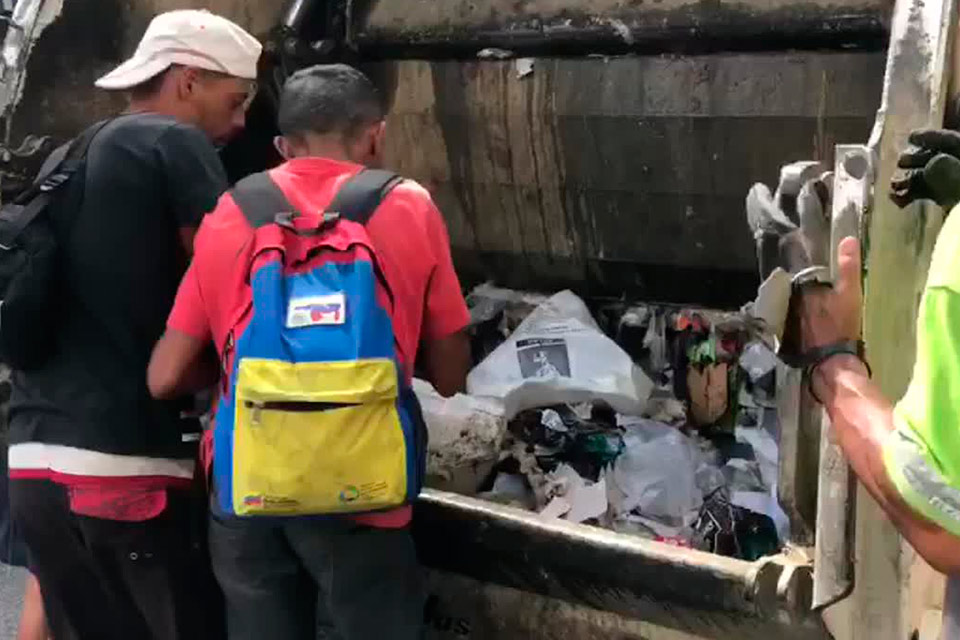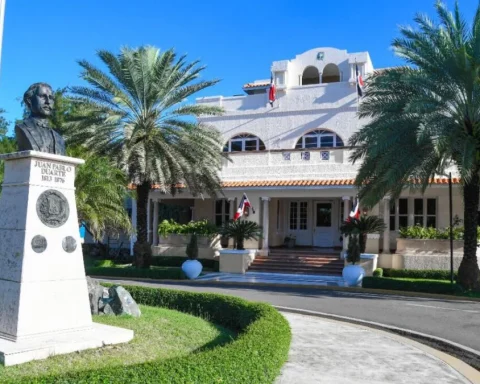Getting used to using the cell phone as a means of payment instead of cash or a plastic card is a process that, although it progresses “quickly”, to the CEO of MODO, Rafael Sototoday faces an “incomplete education” and the lack of “a greater incentive” that may consist of a reduction in tax withholdings on payments received by businesses.
Launched in December 2020 by a consortium of more than 30 Argentine banks, MODO is the digital wallet with which the traditional financial system wants to consolidate the use of electronic money to make purchases, pay taxes, transfer money to other people and all kinds of everyday expenses.
In an interview with Télam, Soto highlighted the launch of the payment system with interoperable transfers – a mechanism that allows any banking application or digital wallet to read a QR code, regardless of the issuing company, and thus be able to pay in physical or virtual stores – but warned about the need for a greater commitment of the actors of the system in educating users and merchants, and governments to reduce tax burdens in a country that, until the beginning of 2020, nine out of ten payments were made in cash.
-Soto, ten months after the launch of payments with interoperable transfers, are they meeting their objectives?
-In a very short time there has been a very significant transformation of the payment ecosystem in Argentina. We went from transacting only with cash to adding plastics, to the appearance of Mercado Pago with its proposal and now, just over a year and a half ago, to MODO’s proposal to digitize all cards.
In MODO we have double-digit growth made up of the number of transactions in the interoperable scheme. That is, users who, for example, pay with MODO in Mercado Pago QRs. Users and businesses are learning that any cell phone can be used to pay in any QR. There is an educational process that is advancing rapidly, but is still incomplete and is a gradual process.
We are still waiting for that massiveness that we would like to see, such as the PIX process in Brazil (an electronic payment scheme that was launched two years ago and is already used by more than 70% of adults in that country). There is a systemic lack of communication that you can pay in any QR with any application.
-Why would someone used to paying in cash choose digital payments? What is the advantage of paying with QR compared to paying with a card?
-When you go out with MODO you don’t have to carry your wallet, you have everything on your cell phone. In Argentina there is a situation where people have accounts in several entities and in MODO you have all your means of payment in your wallet. In addition, there are all the bank promotions and, lately, there is a migration of bank promotions to MODO, so there are more promotions when paying with MODO than when the operation is carried out with plastic.
In addition, when you pay with a plastic you find out if you were charged correctly at the end of the month when you receive the account summary. On the other hand, with MODO, you see the payment on the spot and, soon, you will see the promotion that is being applied to you on the spot. You also see the balance in each account.
-What are the benefits for the merchant to collect with transfers?
-A big problem that businesses have is fraud. Businesses that sell and then the user is unaware of the transaction. That causes you to be debited with a chargeback for the price of that sale. On the other hand, in MODO the user transacts with a card whose ownership is validated, which drastically reduces the possibilities of fraud, taking into account that most of the time the DNI is not requested or the difficulty in proving that the signature on the coupon It is the same as the ID.
In relation to other wallets, the transaction data is protected. With MODO you do not have a conflict of interest, MODO does not have a marketplace on the other side. Then, the business maintains the security of that data protected.
In addition, MODO offers the best commissions in the market. It operates in partnership with the main acquirers in the market that have the lowest commissions in the market, which are those set by the Central Bank, while the competition has additional charges.
“A big problem that businesses have is fraud. Businesses that sell and then the user is unaware of the transaction.
-In recent weeks, wallets such as Ank, Todo Pago and Bimo announced their closure. Is the digital wallet business profitable or is it a consolidation of the market?
-We always said that the market was going to enter a moment of consolidation, and that wallets that have a more differentiated value offer for users would remain in force. MODO is a wallet that, through integration with banks, generates unique benefits in terms of security and ease of use.
When you sign up for MODO you have all your accounts and cards ready to use. And in terms of benefits, it is included in all bank developments, which are one of the most developed in the market and are drivers of sales in Argentina. Other wallets miss out on differentiators that keep them ahead of the podium.
“A transaction that is digitized is a transaction that ensures the taxes corresponding to the different states. If you put withholdings (VAT, Gross Income and other taxes) that exceed 10%, you are helping that transaction continue to be carried out in cash”
-What is missing to gain scalability in digital payments?
-More education. With all the banks we have to continue educating users so that they understand that it is easier and simpler to pay with a cell phone than with a card. The same for shops. Acquirers have to work on explaining to their merchants that it is equivalent to charging with QR or with plastic in terms of how the transaction is displayed in their summaries and what the functions are. Many times there is distrust on the part of the merchant to charge with QR because they do not know how they are going to settle the transaction or what charges they are going to have.
It is necessary to continue developing the digital product offer, so that the promotions are well at the forefront, so that users understand the benefits associated with current transactions. There is also a lack of greater incentive from governments to promote transfer payments. Today the fees (charges) for payments with transfers are the same as those for debits and the same withholdings that are applied with card payments for businesses continue to apply, which exceed 10% of the payment they receive. It’s still expensive to trade versus the costs of receiving cash.
At a technical level, the Argentine ecosystem solved systems integration as well as Brazil. The difference is that, at a commercial level, in Brazil PIX has very low costs and there are no tax withholdings.


















